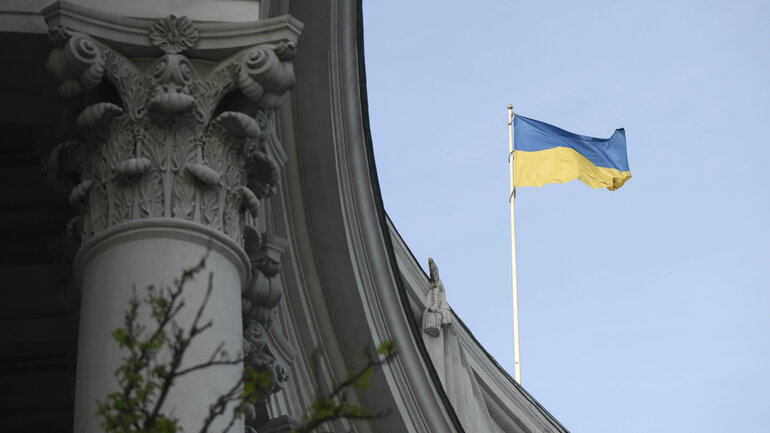Bridging the Gaps in Knowledge about Ukraine
Three years into Russia’s full-scale invasion of Ukraine, knowledge about Eastern Europe still mainly follows prewar patterns. It is time to reconsider approaches to studying the region by rethinking power structures and creating new connections that can enable institutional transformation.

‘Without Starlink, the Ukrainian lines would collapse,’ Elon Musk posted on X on 9 March 2025. And indeed, internet-based infrastructure plays an important role in contemporary warfare. But Musk, like many other observers, has overlooked the agency of Ukrainian society and is furthering a myth of Ukraine’s powerlessness. Knowledge about Ukraine – and the wider region – is full of gaps and prejudices.
What can be done in response? Some answers came from a series of 20 interviews with scholars who have personal or professional connections to Ukraine. They represent various fields – history, anthropology, sociology, economy, and political science – and work in academic institutions in Europe, North America, and Australia. The researchers agreed that while there are now more academic programmes, and thus more visibility, for Ukrainian scholars, old structures remain in place.
Overcoming Ukraine’s invisibility
For many years, departments and programmes that dealt with Eastern Europe shaped perspectives that were often insensitive to life outside the imperial centres of the Russian Empire and the Soviet Union. These perspectives marginalised Ukraine and social and cultural realities in the region. As a result, when the scholars interviewed sought to explain Ukraine’s long-term invisibility, they reached for the language of decolonisation and ideas of epistemic injustice. School curriculums reflect this invisibility: according to a 2022 study, German history textbooks talk about Ukraine as a territory and Ukrainians as a population beyond state borders.
To overcome such views, systematic work is needed at different levels, starting with basic education. The scholars interviewed proposed a critical review of the resources that form the basis of students’ knowledge about the region, from language courses to literary canons to archival materials. The example of Ukraine shows that the history of Eastern Europe should be taught in a way that takes into account imperial dependencies and the complex relationships between peoples and states.
Beyond resilience and vulnerability
The study of Ukraine now often boils down to the study of war, narrowing the space for other topics. Analysts who research the country risk being trapped in certain modes that define their approach. One of these overemphasises the concept of resilience and Ukrainians’ ability to resist any obstacle. Another focuses exclusively on vulnerability and trauma. Each of these approaches captures only a part of the reality, because human and political life in a time of war combines both of these dimensions.
What is more, the terminology scholars use to study the region is not only a consequence of disciplinary traditions but also a reflection of values. Sociologists Viktoriya Sereda and Oksana Mikheieva have shown that the concepts used by researchers – and the media – matter greatly in how people see the reality of war and armed conflict. It is therefore essential to be sensitive to the choice of language, both in designing research methods and in communicating the results.
From rapid responses to long-term engagement
The full-scale Russian invasion of Ukraine provoked many quick reactions in academia, from funding for new scholarships to novel areas of research, for example migration studies or digital warfare. These initial reactions were based largely on solidarity and compassion. Over time, new trends – and risks – have also emerged, such as the exploitation of war to obtain funding by including Ukraine in comparative case studies without any justification or expertise.
Making substantial advances in knowledge about the region requires a transition from short-term reactions to strategic planning. It involves the transformation of institutional structures and thematic refocusing. Personal contacts have helped create new networks or strengthened existing ones, such as the RUTA Association for Central, South-Eastern, and Eastern European, Baltic, Caucasus, Central and Northern Asian Studies in Global Conversation, the Norwegian Network for Research on Ukraine (Ukrainett), and Prisma Ukraïna.
The determination of individual researchers or groups of scholars to find sustainable funding enables new Ukraine-focused positions, programmes, and institutions to emerge. The German academic landscape is revealing in this sense: the German Academic Exchange Service (DAAD) has funded research centres in Viadrina and Regensburg, while the Wissenschaftskolleg zu Berlin (Institute for Advanced Study) has launched the Institute for Advanced Study for Ukraine with the support of the Volkswagen Foundation. All of these initiatives were preceded by a lot of effort, and their impacts will take time to unfold.
Scholars who work on Ukraine face the same challenges as their colleagues in other areas: a lack of funding for humanities and social sciences, precarious positions, and stress. At the same time, their field has long been marginalised and now suffers from the consequences of the war. Their example is a reminder that knowledge directly affects the lives of those it aims to understand.
Dr Nataliia Otrishchenko is a fellow at the Ukraine Research Network@ZOiS, funded by the German Federal Ministry of Education and Research, where she works on the project Gaining Epistemic Authority: Ukrainian Scholars in Global Academia.